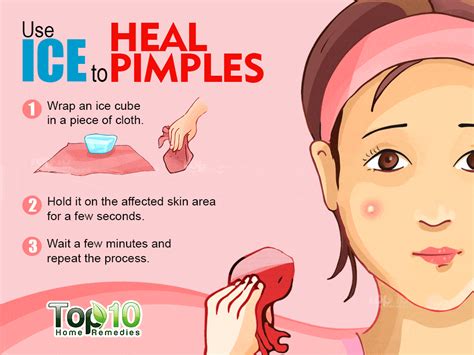How to Get Rid of a Pimple Fast: Home Remedies and Expert Tips
A surprise pimple can be incredibly frustrating, especially when you have an important event or just want to feel confident in your skin. While completely eliminating a pimple overnight is often impossible, you can significantly reduce its size and redness using a combination of home remedies and smart skincare practices. This guide will walk you through effective methods to tackle that pesky blemish quickly and safely.
Understanding Pimples: The Enemy Within
Before diving into solutions, let's briefly understand what causes pimples. Pimples (also known as acne vulgaris) occur when pores become clogged with a combination of oil (sebum), dead skin cells, and bacteria. This buildup creates inflammation, leading to redness, swelling, and sometimes pus.
Fast-Acting Home Remedies: Your First Line of Defense
Several readily available home remedies can help reduce pimple inflammation and speed up healing. Remember, these are supplementary treatments and not a replacement for proper skincare.
1. Ice Compress: Reducing Swelling and Inflammation
Applying an ice compress is one of the quickest ways to soothe a pimple. The cold constricts blood vessels, reducing swelling and redness. Wrap an ice cube in a clean cloth and gently apply it to the pimple for 10-15 minutes. Repeat this several times a day.
2. Spot Treatment with Tea Tree Oil: A Natural Antiseptic
Tea tree oil possesses potent antibacterial and anti-inflammatory properties. Using a cotton swab, apply a tiny amount of diluted tea tree oil directly to the pimple. Important: Dilute the oil with a carrier oil like aloe vera or jojoba oil, as undiluted tea tree oil can irritate the skin.
3. Aloe Vera Gel: Soothing and Healing
Aloe vera gel is a well-known remedy for various skin irritations. Its soothing and anti-inflammatory properties can reduce pimple redness and promote healing. Gently apply a small amount of pure aloe vera gel to the affected area.
4. Aspirin Paste: Reducing Inflammation and Swelling
Aspirin contains salicylic acid, a common acne-fighting ingredient. Crush an aspirin tablet and mix it with a little water to create a paste. Apply this paste to the pimple and leave it on for 10-15 minutes before washing it off. Important: This method is not suitable for sensitive skin.
Long-Term Skincare Habits: Preventing Future Breakouts
While the above remedies help with existing pimples, maintaining a consistent skincare routine is crucial for preventing future breakouts.
1. Gentle Cleansing: Removing Excess Oil and Dirt
Wash your face twice daily with a gentle cleanser formulated for acne-prone skin. Avoid harsh scrubbing, which can irritate the skin and worsen inflammation.
2. Exfoliation: Removing Dead Skin Cells
Regular exfoliation helps prevent clogged pores. Use a gentle chemical exfoliant containing salicylic acid or glycolic acid once or twice a week. Avoid over-exfoliating, as this can damage your skin barrier.
3. Moisturizing: Maintaining Skin Balance
Even oily skin needs hydration. Use a lightweight, oil-free moisturizer to maintain skin balance and prevent overproduction of sebum.
4. Hands Off!: Avoid Touching Your Face
Constantly touching your face transfers bacteria and oil from your hands to your skin, potentially exacerbating acne. Try your best to resist the urge!
When to See a Dermatologist
While home remedies can be effective, persistent or severe acne requires professional help. Consult a dermatologist if you experience:
- Severe acne: Numerous inflamed pimples, cysts, or nodules.
- Acne that doesn't respond to home treatments: Pimples persist despite consistent skincare efforts.
- Acne accompanied by other symptoms: Pain, swelling, or scarring.
By combining these fast-acting home remedies with a consistent skincare routine, you can effectively manage pimples and maintain healthy, clear skin. Remember patience is key – consistent effort yields the best results.
